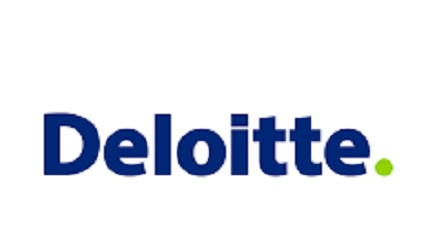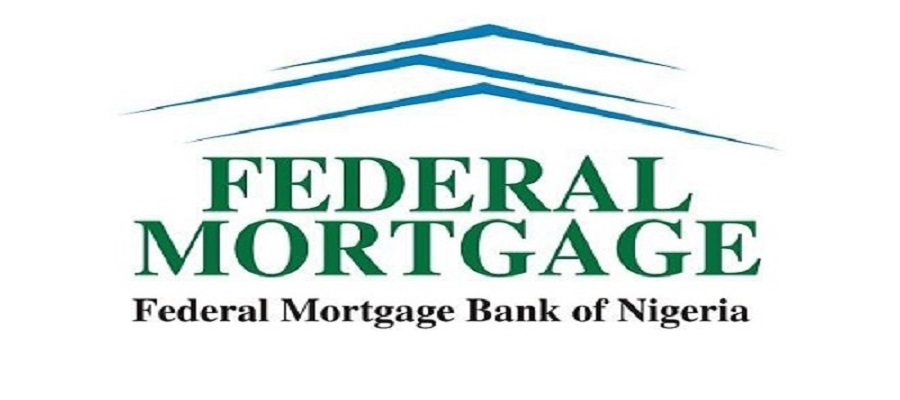E-Financial
3rd Party Touch-Based Payment Service to Increase 150%- Deloitte

Deloitte Global has predicted that in 2016, the number of individuals who use a third party touch-based payment service to make a purchase on their mobile devices (smartphones and tablets) should increase 150 percent, to reach 50 million regular users.
Executive summary of the document titled, “Technology, Media & Telecommunications (TMT) Predictions 2016”, obtained by Nigeria CommunicationsWeek described ‘Touch Commerce’ as enables a customer to make a secure first-time or subsequent payment on any merchant’s website or app without having to provide registration or log-in details either to the merchant or to the payment service.
Authorizing the transaction on a mobile device simply requires the application of a fingerprint or a few touches of a screen, significantly reducing the time taken from browsing to transaction from tens of seconds or even minutes to mere seconds.
Touch commerce, according to Deloitte, enables retailers to exploit shoppers’ increasing use of mobile devices to browse retail sites and apps.
“Transactions on sites and apps remain scarce, with laborious payment processes often to blame. Indeed cart abandonment in mobile commerce can be as high as 80 percent. Easier checkout has been identified as a key factor/key requirement for increased mobile buying.
There are likely to be two principal types of third-party touch-based mobile payment services in 2016. One is linked to the device’s operating system (OS). Shopping applications can use existing information associated with the OS, including payment card details and home address”.
Deloitte Global expects this category should represent the majority of touch-based payments made in 2016: there are billions of smartphones that have payment card and home address information associated with them.
Additionally, the base of fingerprint reader-equipped devices is steadily rising, with more than 450 million forecast to ship this year, adding to the existing base of hundreds of millions’.
“The second type of third-party touch-based mobile payment service is linked to existing payment service providers.
Prior to being able to make purchases by one or two touches of the screen, the user would need to have opened an account with the payment provider and elected to stay logged in for future purchases.
“Once this feature is enabled, the user simply has to press buy and confirm buttons. Confirmation can be via a fingerprint with some devices.
“These payment services enable retailers to outsource mobile transactions to third parties, and by so doing, convert payment from a frustrating to a friction-free experience.
“One merchant reported that the checkout process via their legacy app required 103 seconds for customers to type in their full credit card and shipping information; third-party touch payment reduced this to just 17 seconds.
“Other payment services may emerge soon. For example, some large retailers could enable their customers to use pre-stored payment data to validate purchases made on other retailers’ apps.
“Today’s consumers are constantly connected to their smartphones, from the early hours in the morning to late at night, when at work, while spending time with family and friends or while commuting. Touch commerce provides opportunities for converting browsing into purchases with a simplified payment process,” the document reads.
E-Financial
SERAP Demands Answers over Missing N3 Trillion in CBN Account

Socio-Economic Rights and Accountability Project (SERAP) has urged Mr. Olayemi Cardoso, governor of the Central Bank of Nigeria (CBN), “to promptly account for and explain the whereabouts of the missing or diverted N3 trillion of public funds, as documented in the recently published 2022 annual report by the Auditor-General of the Federation.”

SERAP said the grave allegations are documented in the latest annual report published by the Auditor-General on 9 September 2025.
SERAP urged him to “identify those responsible for the missing or diverted public funds and hand them over to the Independent Corrupt Practices and Other Related Offences Commission (ICPC) and the Economic and Financial Crimes Commission (EFCC) for further investigation and prosecution.”
SERAP also urged him “to ensure the full recovery and return of any missing public funds to the treasury without further delay.”
In the letter dated 15 November 2025 and signed by Kolawole Oluwadare, SERAP, deputy director the organisation said: “These grim allegations by the Auditor-General suggest grave violations of the public trust, the provisions of the Nigerian Constitution 1999 [as amended], the CBN Act, and anticorruption standards.”
SERAP said, “These grave violations also reflect a failure of CBN accountability more generally and are directly linked to the institution’s persistent failure to comply with its Act and to uphold the principles of transparency and accountability.”
According to SERAP, “These violations have seriously undermined the ability of the CBN to effectively discharge its statutory functions and the public trust and confidence in the bank. The CBN ought to be committed to transparency and accountability in its operations.”
The letter, read in part: “According to the Auditor-General, the CBN in 2022 failed to remit over N1 trillion [N1,445,593,400,000.00] of ‘the Federal Government’s portion of operating surplus’ into the Consolidated Revenue Fund (CRF) account.”
“The Auditor-General fears that the money may have been ‘diverted.’ He wants the money recovered and remitted to the treasury.”
“The CBN in 2022 failed to recover over N629 billion [N629,040,000,000.00] paid to ‘unknown beneficiaries’ as part of the Anchor Borrowers’ Programme, a programme ‘meant to support farmers to ensure sustainable food production in the country.’”
“But ‘the numbers of beneficiaries who collected the money are unknown.’ The CBN has also failed to ‘recover the money.’ The Auditor-General fears ‘the money may have been diverted’, which could have ‘contributed to the difficulty in sustaining food security in the Nation.’”
“He wants the money recovered and remitted to the treasury.”
“The CBN has also failed to recover over N784 billion [N784,410,108,864.47] ‘being 32 unpaid, overdue loans and interventions disbursed by the Bank between 2018 and May 2022.’”
“The Auditor-General said ‘there was no evidence that the Bank was doing enough to recover the loans/interventions, which ought to have been paid.’ He wants the money recovered and remitted to the treasury.”
“The CBN in 2022 also spent over N125 billion [N125,374,000,000.00] ‘on questionable intervention activities.’ The CBN claimed it spent the money ‘on intervention activities in connection with national security, the federal government, state securities, armed forces and to build the capacity of the financial sector’.”
“But the Auditor-General is concerned that the money may have been spent ‘without the approval of the National Assembly.’ There was also no document to ‘support the expenditure.’”
“The ‘expenditure also may not have been in the public interest and consistent with the objectives of the CBN in section 2 of the CBN Act.’ The Auditor-General fears the money may have been ‘diverted.’ He wants the money recovered and remitted to the treasury.”
“The CBN in 2022 also ‘unjustifiably’ spent over N1 billion [N1,792,769,160.00] to buy 43 operational vehicles for the Nigeria Immigration Service (NIS). The ‘spending is unjustified because there is no connection with buying operational vehicles for the NIS and the objectives of the CBN as stated in section 2 of the CBN Act.”
“The NIS also ‘failed to provide any evidence to show that the vehicles were actually supplied and delivered.’ There ‘were also no procurement and payment records or documents.’ The Auditor-General fears the money may have been ‘diverted’. He wants the money recovered and remitted to the treasury.”
“The CBN also awarded 43 contracts for over N189 billion [N189,50,066,756.73] but ‘the contractors deliberately delayed completion of these contracts’ by seeking ‘extension of the completion period.’”
“The contractors then ‘requested for variation of contracts due to extension of completion period.’ Following the request, the CBN paid the contractors over N9 billion [N9,270,849,691.61] ‘irregular variation of contract price.’”
“There ‘were no relevant procurement documents such as contract files, procurement records, and payment vouchers’ for the payment. The Auditor-General fears ‘the money may have been diverted’ and the projects may have been abandoned.’ He wants the money recovered and remitted to the treasury.”
“The Katsina state branch of the CBN also failed to recover over N90 million [N90,163,610.00] being ‘outstanding loans and interventions disbursed to 33 small and medium enterprises during Covid 19 in 2020.’”
“The Auditor-General fears ‘the money may have been ‘diverted’ or ‘mismanaged’. He wants the money recovered and remitted to the treasury.”
“We would be grateful if the recommended measures are taken within 7 days of the receipt and/or publication of this letter. If we have not heard from you by then, SERAP shall take all appropriate legal actions to compel you and the CBN to comply with our request in the public interest.”
“Paragraph 708 of the Financial Regulations 2009 provides that, ‘on no account should payment be made for services not yet performed or for goods not yet supplied.’”
“Section 15(5) of the Nigerian Constitution requires public institutions to abolish all corrupt practices and abuse of power.” Section 13 of the Constitution imposes clear responsibility on the CBN to conform to, observe and apply the provisions of Chapter 2 of the constitution.”
“Paragraph 3112(ii) of the Financial Regulations 2009 provides: ‘Where a public officer fails to account for government revenue, such officer shall be surcharged for the full amount involved and such officer shall be handed over to either the EFCC or the ICPC.’”
“Nigerians have the right to know the whereabouts of the public funds. Taking the recommended measures would advance the right of Nigerians to restitution, compensation and guarantee of non-repetition.”
“The Nigerian Constitution, Freedom of Information Act, and the country’s anti-corruption and human rights obligations rest on the principle that citizens should have access to information regarding their public institutions’ activities.”
E-Financial
SEC Partners FMBN Partner on Non-Interest Mortgage Framework

Securities and Exchange Commission (SEC) and the Federal Mortgage Bank of Nigeria (FMBN) have announced a strategic collaboration to develop a robust Non-Interest Mortgage (NIM) ecosystem.

This significant move is part of efforts to address the nation’s massive housing deficit and deepen financial inclusion.
At a high-level meeting in Abuja of Friday, both parties agreed to create and regulate viable Sharia-compliant financing structures that will enable millions of Nigerians, particularly those excluded from conventional interest-based loans, to access affordable homeownership.
With Nigeria’s housing deficit estimated to be over 28 million units, the initiative is being hailed as a potential game-changer.
It directly addresses a key barrier to homeownership: the affordability and religious compliance of mortgage products for a significant segment of the population.
The successful implementation of this framework is expected to not only reduce the housing deficit but also stimulate the construction industry, create jobs, and foster greater financial inclusion, ultimately contributing to national economic growth.
Unlike conventional mortgages that charge interest, non-interest financing is based on principles of risk-sharing, asset-backing, and equitable returns. The models under consideration include:
Musharakah (Diminishing Partnership): The bank and the customer jointly purchase a property. The customer gradually buys out the bank’s share through periodic payments, eventually becoming the sole owner.
Ijara (Lease-to-Own): The bank buys the property and leases it to the customer for a fixed period. A portion of the rental payments goes towards the eventual ownership transfer.
Murabaha (Cost-Plus Sale): The bank acquires the property and sells it to the customer at a pre-agreed markup, payable in instalments.
Commenting on the development, Mr Emomotimi Agama, director-general of SEC, said his agency would provide the necessary regulatory guidance and framework to facilitate the issuance of Sukuk (imic bonds) and other non-interest capital market products to fund these mortgages.
“Our collaboration with FMBN is pivotal to unlocking long-term financing for the housing sector. By creating a clear regulatory pathway for non-interest mortgage-backed securities, we can attract ethical investors, both domestic and international, to channel funds into this critical area. This will create a virtuous cycle of funding, construction, and ownership,” he stated.
On his part, Mr Shehu Osidi, chief executive of FMBN, said the partnership marks a critical step in fulfilling the bank’s mandate to provide affordable housing for all Nigerians.
“For a long time, a substantial number of our citizens have been unable to participate in the National Housing Fund (NHF) scheme due to the interest-based nature of conventional mortgages.
“This partnership with SEC is a strategic response to that gap. We are committed to developing non-interest mortgage products that are not only ethical and inclusive but also financially sustainable,” he noted.
E-Financial
Banks Lost N3.3Bn to Fraud in Q1 of 2025 – FITC

Nigerian Banks have recorded a N3.3 billion loss to fraudulent activities during the first quarter of 2025, a 603% year-on-year (YoY) increase from N468 million in the first quarter of 2024, according to The Financial Institutions Training Centre (FITC).

This is contained in a September 2025 report by FITC.
In its methodologies, FITC received 73 fraud and forgery submissions from Nigerian banks between January and March 2025.
The highest (25) was in March, which accounted for the highest volume with 25 submissions. Amid this, the total cases reported increased by 7.7% to 12,347 in Q1 2025.
Further breakdown shows that the most frequently reported incidents were tied to computer/web platforms (7,361 cases), mobile transactions (2,875 cases), and POS terminals (1,559 cases).
While computer/web-based fraud emerged as the most financially significant category in Q1 2025, it also accounted for N10.6 billion (47.7%)of the total amount involved in reported cases.
With a total case at over 12,000, the total amount involved surged by 645.4% to N22.27 billion.
The comparison shows that fraudsters are now targeting fewer but higher-value transactions.
This shows that perpetrators are bypassing banks’ systems of flagging volume anomalies and leveraging on their weak detection systems.
On a positive note, the first quarter of 2025 witnessed a reduction in outsider participation in fraud, with reported cases falling by 4.8% YoY to 10,896.
However, staff-related incidents increased with 63 cases recorded in the quarter compared to 47 in Q1 2024.
In addition, 28 employees are currently under investigation, and 23 staff members had their appointments terminated.
According to FITC, the report signals a pivot in fraud tactics and a switch from frequent small-value hits to targeted, high-impact operations. “Fraud is no longer a volume issue; it’s a value game. And staying ahead means thinking proactively and innovatively,” it added.
In terms of channels, card-based fraud accounted for 11,972 cases (N1.6 billion loss) while cash-related fraud accounted for 375 cases (N832.4 million). Also, cheque-related cases were 46, with a loss of (N837.7 million).
The FITC has advised Nigerian banks to strengthen their security protocols and systems to prevent unauthorised access to customer accounts and sensitive information, considering the rising fraud cases.
According to the report, this may involve incorporating measures such as multi-factor authentication, implementing strong encryption techniques, and ensuring regular security updates are in place.
They can also integrate fraud models that weigh transaction context, behavioural history, and device fingerprints.
“Financial institutions must adopt a layered, adaptive, and intelligence-first approach, supported by interbank collaboration, staff accountability, and informed customer behaviour,” it said in the report.
To curtail staff-involved cases and reduce internal risk, financial institutions must deploy role-based access management, ensuring limited data/system visibility per role.
Another corrective measure is the introduction of monthly digital footprints and outlier audits for staff handling high-risk operations.

 Telecom3 days ago
Telecom3 days agoAirtel Nigeria Unveils Smartphone Financing for New Devices

 E-Business3 days ago
E-Business3 days agoKaspersky Introduces Cyber Pathways to Support Career Development in Cybersecurity

 E-Financial3 days ago
E-Financial3 days agoBanks Lost N3.3Bn to Fraud in Q1 of 2025 – FITC

 E-Financial3 days ago
E-Financial3 days agoSEC Partners FMBN Partner on Non-Interest Mortgage Framework

 General News3 days ago
General News3 days agoPaystack Suspends CTO Ezra Olubi Over Alleged Misconduct, Launches Investigation

 General News3 days ago
General News3 days agoLagos Launches Centralised Mental Health Providers Directory

 Telecom3 days ago
Telecom3 days agoSix Students Emerge Abuja Regional Champions in MTN Spelling Bee

 Telecom3 days ago
Telecom3 days agoAFRIFF 2025: Globe Awards Spotlight African Creativity, Honour Wigwe Legacy














